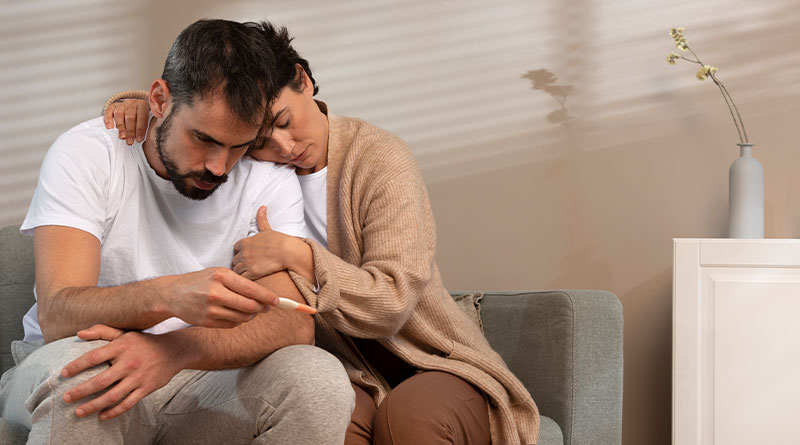Did you know that a staggering 65% of failed relationships cite poor communication as the primary reason for their downfall? Communication is undeniably the bedrock of successful relationships, be it romantic, familial, or friendships. Effective communication plays a vital role in fostering understanding, resolving conflicts, and nurturing a deep sense of connection.
In this article, we will explore the significance of communication in relationships and delve into the impact it has on the overall health and longevity of our closest bonds.
By implementing these strategies, you can enhance your relationships and create a more harmonious and fulfilling connection with your loved ones.
Importance of Communication in Relationships
Communication serves as the lifeblood of relationships, allowing individuals to express their thoughts, emotions, and needs. When communication is effective, it promotes understanding, empathy, and trust.
Here are a few key reasons why communication is crucial in relationships:
Building Trust and Intimacy
One of the primary benefits of effective communication in relationships is the establishment and maintenance of trust and intimacy. When individuals communicate openly and honestly with each other, they create an environment of trust and emotional safety. Sharing thoughts, feelings, and vulnerabilities promotes a deeper connection and allows both parties to feel understood and validated. By fostering trust and intimacy through communication, relationships can grow stronger and more resilient.
Enhancing Understanding and Empathy
Communication serves as a vehicle for understanding and empathy in relationships. Through open dialogue, individuals can express their perspectives, needs, and desires, while also taking the time to listen to their partner’s point of view. Active listening and genuine empathy enable both parties to develop a deeper understanding of each other’s experiences, thoughts, and emotions. This understanding fosters empathy, compassion, and a sense of closeness, ultimately strengthening the bond between individuals.
Resolving Conflicts
Conflict is an inevitable part of any relationship. However, effective communication provides a framework for resolving conflicts in a healthy and constructive manner. When individuals communicate openly and respectfully during disagreements, they can express their concerns, identify the root causes of the conflict, and work together to find mutually satisfactory resolutions. Honest and transparent communication allows for the acknowledgment of differing perspectives, the practice of compromise, and the rebuilding of trust after conflicts arise.
Facilitating Collaboration and Decision Making
Effective communication in relationships promotes collaboration and facilitates the process of decision making. When individuals communicate openly and share their thoughts and ideas, they can work together to find common ground and make informed choices that benefit the relationship. Collaborative decision making fosters a sense of equality and mutual respect, ensuring that both parties feel heard, valued, and involved in shaping the direction of the relationship.
Preventing Misunderstandings and Resentment
Miscommunication and unexpressed emotions can lead to misunderstandings and the buildup of resentment in relationships. By prioritizing clear and open communication, individuals can address issues as they arise, preventing misunderstandings from escalating into larger problems. Regular communication allows for the identification and resolution of issues before they fester and cause long-term damage to the relationship. It enables both parties to address concerns, seek clarification, and maintain a harmonious connection.
Tips for Effective Communication in Relationships
Now that we understand the importance of communication, let’s explore some practical tips to enhance communication within your relationships:
Active Listening
Active listening is a fundamental aspect of effective communication. It involves fully focusing on the speaker, maintaining eye contact, and showing genuine interest in what they are saying. Avoid interrupting and make an effort to understand their perspective before responding.
Use “I” Statements
When expressing your thoughts or feelings, use “I” statements instead of “you” statements. For example, say “I feel hurt when…” rather than “You always make me feel…” This approach promotes ownership of your emotions and avoids blaming the other person, fostering a more productive conversation.
Practice Empathy
Put yourself in the other person’s shoes and try to understand their feelings and point of view. Empathy allows you to respond with compassion and helps in resolving conflicts by considering both perspectives.
Be Mindful of Non-Verbal Communication
Non-verbal cues such as facial expressions, body language, and tone of voice can convey as much, if not more, meaning than words. Pay attention to your own non-verbal cues and be receptive to the non-verbal cues of your partner. This will ensure your communication is congruent and avoids misinterpretation.
Overcoming Barriers to Effective Communication
Despite our best efforts, barriers to effective communication can arise within relationships. By identifying and addressing these barriers, we can strengthen our communication skills and foster healthier connections:
Lack of Active Listening: Inattentiveness, distractions, or preoccupation with personal thoughts can hinder active listening. Practice mindfulness, eliminate distractions, and prioritize the conversation at hand to actively engage in the exchange of thoughts and emotions.
Assumptions and Misinterpretations: Assuming we understand what the other person is trying to communicate can lead to misunderstandings. Clarify any ambiguous statements and ask for elaboration when necessary to ensure you fully comprehend their intended message.
Emotional Blocks: Emotional blocks such as defensiveness, anger, or fear can impede effective communication. Take a moment to recognize and manage your emotions before engaging in a conversation. Practice self-awareness and emotional regulation techniques to create a safe space for open and constructive dialogue.
Lack of Empathy: Difficulty in empathizing with the other person’s emotions or point of view can create a barrier in communication. Cultivate empathy by actively seeking to understand their perspective, acknowledging their feelings, and validating their experiences. This will foster a deeper connection and mutual understanding.
Poor Timing: Choosing the right time and place for a conversation is crucial. Avoid discussing sensitive topics or initiating important discussions when either party is stressed, tired, or preoccupied. Find a time when both individuals are calm and receptive, allowing for a more productive and meaningful conversation.
Conclusion
Effective communication is the key to building and maintaining strong relationships. By prioritizing active listening, using “I” statements, practicing empathy, and being mindful of non-verbal cues, we can enhance our communication skills and foster healthier connections. Additionally, recognizing and addressing barriers such as poor listening, assumptions, emotional blocks, and timing issues can further strengthen our ability to communicate effectively.
Remember, communication is a continuous process that requires effort and commitment from all parties involved. By investing time and energy into improving our communication skills, we can create relationships that are built on trust, understanding, and mutual respect. So, start implementing these strategies today and watch as your relationships flourish with enhanced communication.
Sahil Sachdeva is the Founder of curemedoc.com and a Digital Marketing professional with years of experience. If you need help in Content writing and want to increase your website ranking, connect with him, as he has some premium websites where you can share blogs with DoFollow links and increase your website’s ranking on Google.





